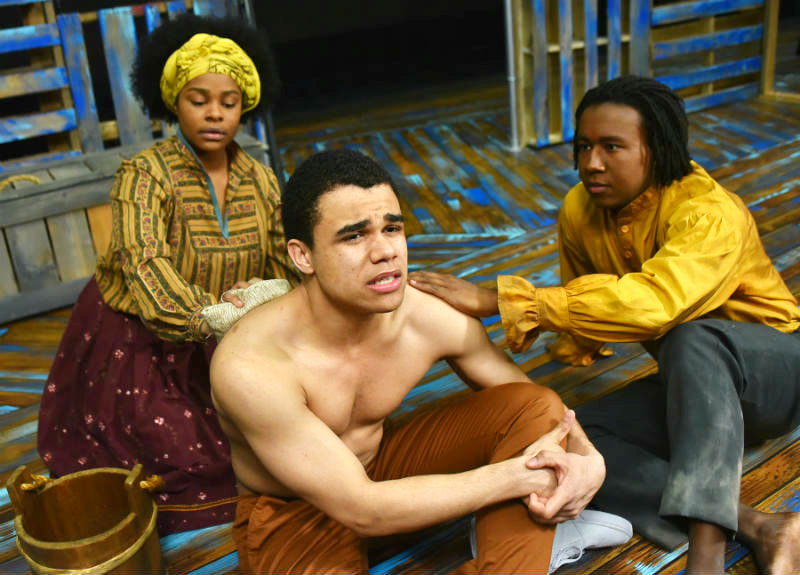Reading the synopsis of this play online had done little to prepare me and my friend for the powerful, and emotional journey into the US’s dark history of slavery that awaited us in the intimate space of the Arthur Miller theater. This interpretation of Robert O’Hara’s 1995 play was brilliantly adapted by the Department of Theater and Drama into a nearly three-hour long production filled with twists and turns. O’Hara’s play is a time-traveling look into Nat Turner’s 1831 slave insurrection, from the point of view of Ron, a modern-day college student completing his thesis on slavery, and his 189 year-old grandfather, T.J., who was a part of the rebellion himself.
Before the play even began, I noted how intimate the Arthur Miller theater was, and that proved to only add to the emotional impact of the play itself. The set was minimal and yet entirely sufficient to capture the feeling and multiple locations of the play.
One of my major takeaways was that every single actor had their intensity dialed up to the very top for the majority of the play’s runtime. There were moments that left me breathless, as the actors went through emotions of extreme fear, anger, sadness in quick succession. In the second act this was particularly noticeable, as the few moments that were quieter in nature were even more impactful, soft whispers standing in drastic contrast with the high energy shouts and cries of other scenes. Most of the actors also played multiple characters, and I was shocked at how easily they seemed to switch from one to the other.
Additionally, the actors were clearly working hard physically, with a large portion of the play being heavily choreographed or strenuous to do. I noticed that many of the actors would be sweating by the end of a short monologue, which only added to the emotional intensity. While I know little about stage direction, it was an extremely lively play with never a dull moment, as the actors tripped, danced, and ran around not only the stage, but the entire theater.
I wasn’t expecting there to be the amount or level of comedy in this play as there ended up being. Almost every other minute the actors sent the audience into a load roar of laughter. Considering the dark themes of the play, the comedy felt uncomfortable at times, but I assume that was part of the point.
I highly recommend attending future shows put on by the Department of Theater and Drama. I couldn’t have imagined a more entertaining or engaging weekend.












